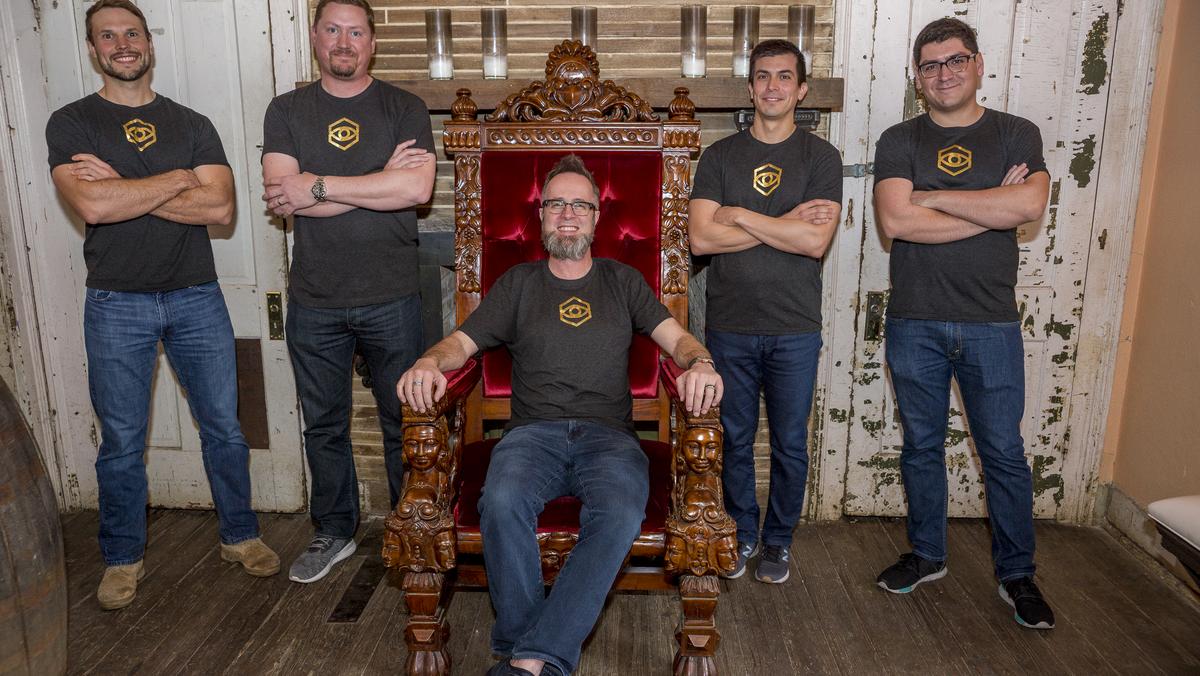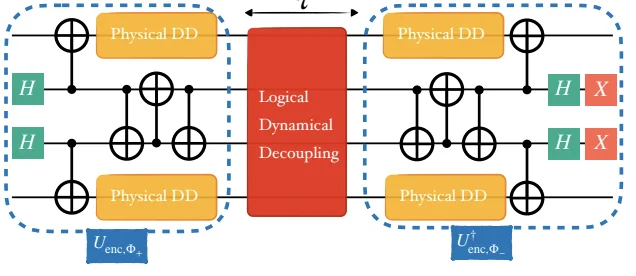In the quantum computing community, experts like to compare the current status of quantum technology with key moments in classical computing history, for example, the age of transistors in the 1970s, or the birth of the dotcom era in the 1990s.
But, the company ethos at Strangeworks, the Austin-based QC startup led by veteran entrepreneur William Hurley, aka Whurley, begs comparison to a completely different era altogether. Rather than the dotcom age or the transistor era, this quantum startup seems to beckon back to the punk rock wave in mid-1970s London, an era when working-class garage bands with grit and attitude were set on upending the saccharine pop music and over-indulgent prog rock that polluted the airwaves and littered concert venues.
This 10-person band of Austin-based programmers is content to crank code out just like the Clash and Sex Pistols were content to crank away at power chords and play to straight backbeats in rented warehouses in the city’s seamiest sections.
And like those garage rock pioneers, for Strangeworks, there are no style points. Their three-chords-and-the-truth formula for making the quantum era actually happen is simple: code, build the community, code some more, repeat…

Never Mind The Bollocks, Here’s Strangeworks

While many startups in the quantum space are busy with entangling qubits, adding qubits and otherwise wrangling qubits, Strangeworks is intensely focused on what they consider the real power behind quantum computers: creating the tools that will tap the brainpower of millions of software developers, hackers and engineers worldwide who will one day create real-world applications out of the bizarre world of quantum mechanics.
Strangeworks has started to do just that. The startup has created QuantumComputing.com, which is a platform-agnostic hub currently in beta that will connect programmers with quantum tools and platforms. Because there are so many different software languages for quantum computing, various types of quantum technologies and platforms, and a myriad of ways to connect with the devices, Strangeworks is sorting this out for programmers by creating the ultimate QC hub.
“Building a hardware agnostic community is phase one,” said Whurley. “We built the community, we took feedback from the community and built what we have on QuantumComputing.com, and we continue to build that community.”
Currently, www.QuantumComputing.com can connect with seven platforms, but that’s just the start. Whurley envisions an array of quantum technologies right at the programmer’s fingertips.
“You can find experiments across multiple platforms and program in multiple framworks,” he said. “In fact we recently demonstrated the platform at Rigetti 2020 where we ran a single experiment that incorporated code from Rigetti’s Pyquil, IBM’s qiskit, Google’s Cirq, and MDR’s Blueqat and ran all of these in one transaction on Rigetti’s 14 qubit hardware.”
The site also features a huge library of content and experiments that developers can reference, everything from Bell’s entanglement to Grover’s search algorithm to quantum teleportation that can work across platforms.
Developers can also investigate how to tailor machines to ensure the best performance.
“If you don’t know what machines to run it on, we give you the tools to find out easy,” said Whurley. “You can focus on the use case that matters to you, focus on actually finding the quantum answers that are relevant to you.”
Community Focused, Business-Savvy
There’s another difference with this team. While most startups in the quantum space exclusively emphasize academic credentials, Strangeworks is quick to offer their business — particularly in dealing with enterprises — cred, as well.
“A lot of the startups are founded by academics and have very little enterprise or entrepreneurial experience.”
“We have experience with developing major management platforms from Tivoli System Management software to BMC and IBM, so we understand at a different level a lot of the problems with writing enterprise software and scale, but — most importantly — we understand enterprise.”
Why Do We Need Quantum Computers

The business case for quantum computers will probably emerge out of the need for companies and enterprises to master computational complexity, added Whurley. “Here’s the deal: do you have problems where the evaluation time soars when you add just a few additional variables? — that’s the question,” said Whurley.
One example is modeling molecules, essential for developing new medicines and novel materials for renewable energy. Molecules are quantum mechanical, and understanding their properties is exceedingly hard for current computers. They can only simulate small molecules with few electrons, and if one wants to change an atom or two with some more electrons, the complexity of the problem increases dramatically.
Although not every business is concerned with chemistry, there are enough businesses that are concerned with similarly structured complex challenges. This is the need that a quantum computer seems designed to address, according to Whurley.
“There are hundreds, thousands of problems of computational complexity where the problem isn’t that the computers can’t do it, it’s that evaluation time does not scale,” said Whurley. “Trying to reduce how the evaluation time scales, then, becomes extremely valuable. Even exponentially valuable in many cases.”
Far To Go, But Moving Extremely Fast
By the way, Whurley has a nuanced view of the future of quantum computing. In the debate between where the quantum era is compared to the classical computing timeframe, Whurley doesn’t see the industry in the dotcom era, transistor era, or even the vacuum tube era.
“We’re nowhere near there,” said Whurley. “It’s like the 1920s.”
However, Whurley says the technology is nearing its breakthrough moment and when it reaches that pivot, we should express the pace of progress to move breathtakingly fast.
“Now I am also a big proponent and believer that we will go through those iterations at a billion times the pace of classical computing,” said Whurley. “I say that sometime between tomorrow and within 24 to 36 months, there’s going to be a watershed moment. I wouldn’t be working at this company if I thought it was 10 years before there’s any value.”
More From Strangeworks
While the company remains pretty quiet — content to code, build community, and repeat — the team does expect to continue to reach out to connect with the quantum computing community.
Whurley, who recently co-wrote Quantum Computing for Babies, plans on publishing several more books designed, again, to build that community. “These are not for people who love physics or for people who want to hear Brian Greene talk about quantum mechanics, these are for the 23 million developers worldwide, for all of the middle school and high school kids we should inspire to start learning about this exciting field… and yes, even the babies.” he said. The team is actively attending conferences and offering talks globally to onboard people into quantum programming.















